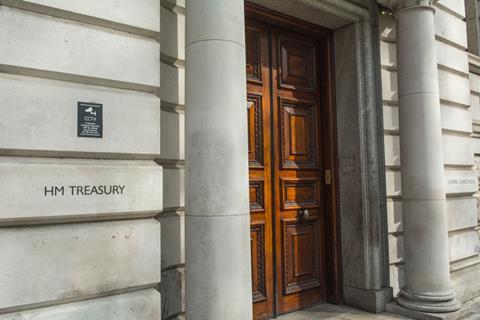Snap poll reveals industry concerns ahead of mini-budget
More than a quarter of engineering and consulting businesses are concerned about whether they can cope with forecast economic headwinds, a snap poll has revealed ahead of the chancellor’s mini-budget today.
The boss of the Association for Consultancy and Engineering (ACE), which conducted the survey, urged Kwasi Kwarteng to recommit to investments to road and rail infrastructure to boost confidence in the construction sector, with the latest industry data showing project starts beginning to slow.

The three months to the end of August saw project starts decline 48% against the previous year, according to information firm Glenigan.
In its most recent review, it also reported a 12% fall in main contract awards against the preceding three months, citing ongoing materials inflation caused by the Russia-Ukraine conflict as a key factor in the downward trend.
ACE’s poll confirmed that inflation remains the primary issue in construction, with 86% of respondents agreeing it was “an operational concern”.
Rising costs were followed by client confidence (79%) and wage inflation (71%) as the top problems, while higher energy costs ranked relatively lower (40%), with recently announced government support in that area appearing to have eased business’ worries.
The survey – which was taken between 5 September and 20 September – also found that nearly a fifth of respondents’ (19%) order books for 2023 were more than half-empty, with 45% having between half and a quarter of their capacity available.
Stephen Marcos Jones, chief executive of ACE, said it was clear that the macroeconomic situation was “affecting business confidence” and today’s mini-budget would “provide an opportunity to reassure the construction industry”, asking for “additional clarity over the pipeline of projects”.
“Recommitments on government spending will go a long way to boosting confidence,” he said.
“An assured programme of projects from the public sector will drive growth and support jobs across the UK, with positive knock-on effects on private sector confidence, while delivering political ambitions around economic growth and jobs.”
“On the campaign trail the prime minister made several very prominent pledges on rail and road infrastructure and we need to see these turned into viable projects.”


























No comments yet